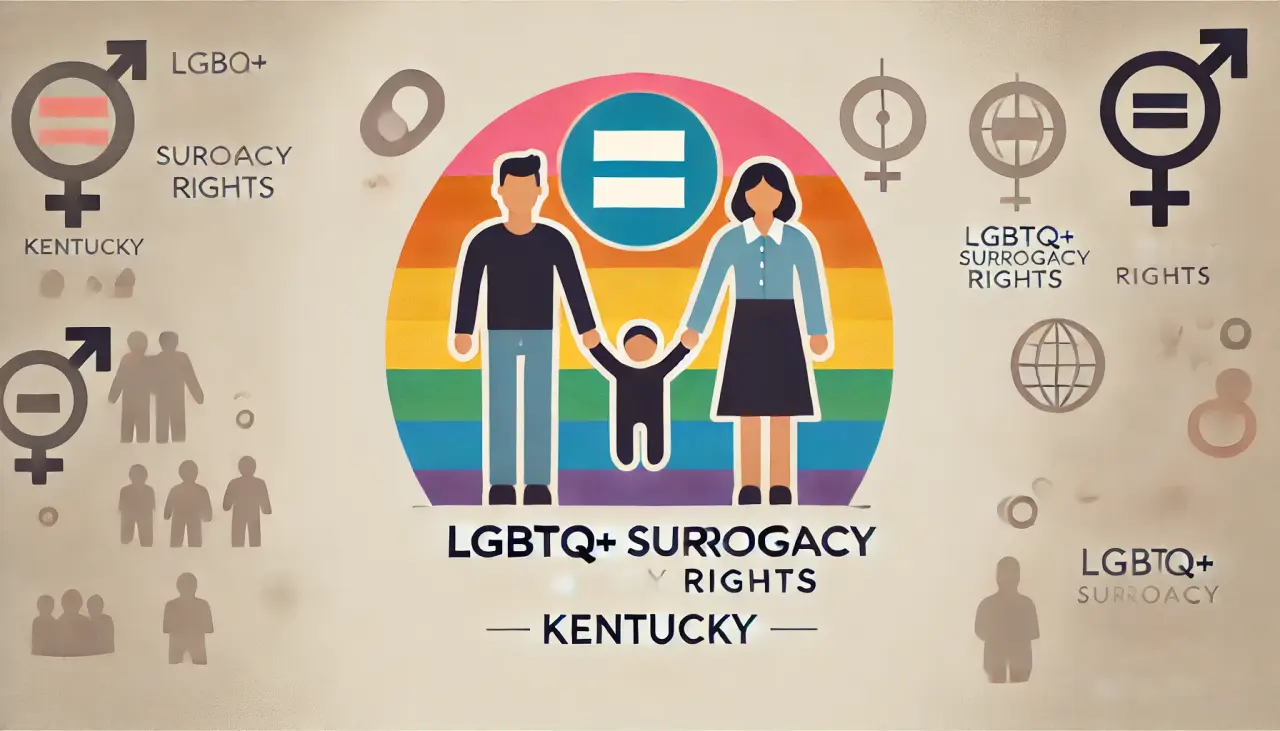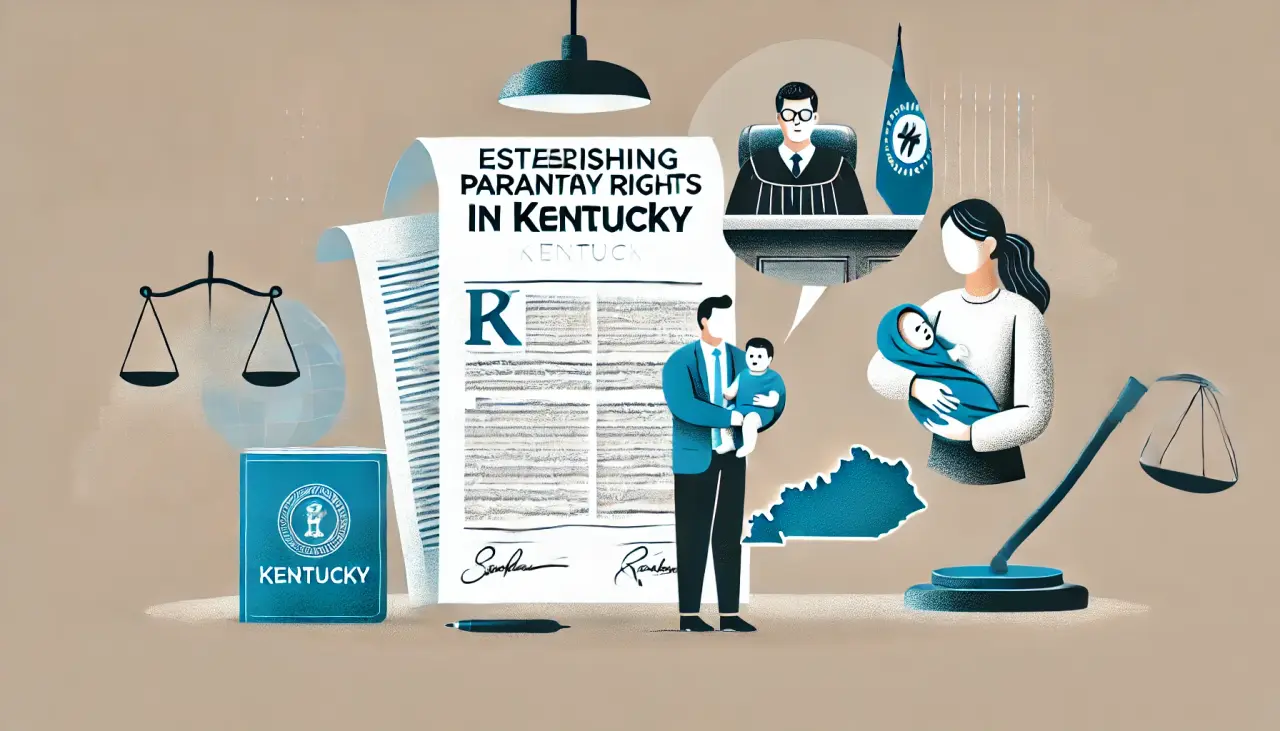
Surrogacy Laws in Kentucky: Legal Issues, Commercial Surrogacy, and LGBTQ+ Parental Rights
In Kentucky, there are no specific laws either allowing or prohibiting surrogacy, nor have there been published precedents on the matter. As a result, surrogacy is generally considered legal by default in Kentucky.
While the following guidelines will provide a better understanding of surrogacy in Kentucky, it is crucial to note that this article should not be taken as legal advice. It is highly recommended to consult with an experienced surrogacy lawyer to guide you through the unique surrogacy process in Kentucky.

1. Frequently Asked Questions (FAQ) About Surrogacy in Kentucky
Q: Is gestational surrogacy legal in Kentucky?
A: Yes, gestational surrogacy is legal in Kentucky. Since there are no laws either permitting or prohibiting gestational surrogacy, it is generally considered lawful and recognized as a common practice in the state.
Q: Is traditional surrogacy legal in Kentucky?
A: Kentucky law specifically prohibits paid traditional surrogacy. However, unpaid traditional surrogacy is allowed.
Q: Is compensated commercial surrogacy legal in Kentucky?
A: Yes, compensated commercial gestational surrogacy is legal in Kentucky. There are no legal restrictions on the basic compensation a surrogate mother can receive; the amount is typically decided in the surrogacy contract between the surrogate and the intended parents.
In addition to the base compensation, surrogates may receive compensation for the following:
- IVF cycle compensation
- Embryo transfer compensation
- Medication start-up costs
- Monthly living expenses
- Household service budget
- Maternity clothing allowance
- Medical expenses
- Travel expenses for clinic/hospital visits
- Lost wages (if applicable)
- Childcare costs if bed rest is required
- Life insurance
- Health insurance
- Independent legal counsel (surrogacy attorney)
- Psychological counseling
- Other services as determined by the surrogacy agency

2. LGBTQ+ Surrogacy in Kentucky
Q: Is surrogacy for LGBTQ+ couples legal in Kentucky?
A: Yes, LGBTQ+ surrogacy is legal in Kentucky. LGBTQ+ couples and individuals (gay, lesbian, bisexual, transgender, etc.) have the same legal rights as heterosexual couples. They will undergo a similar surrogacy process, though they may need egg donors or sperm donors to complete the IVF procedure.
Q: Are there any laws in Kentucky affecting LGBTQ+ parenting?
A: No, there are no specific laws in Kentucky that impact LGBTQ+ parenting.
Q: Will Kentucky enforce surrogacy contracts (whether commercial or altruistic)?
A: Kentucky does not have specific laws on the enforceability of surrogacy contracts. As a result, there is no set of guidelines determining when a court may enforce a surrogacy contract. However, since surrogacy agreements are considered legal contracts like any other, they are presumed to be enforceable. It is important to work with an experienced surrogacy lawyer to guide you through the process and ensure your rights are properly protected.
Q: Are there any special laws for foreign intended parents completing surrogacy in Kentucky?
A: Foreign intended parents must follow the same surrogacy process as domestic parents. However, it is crucial for international parents to consult with an immigration lawyer to ensure they are following the proper legal steps to bring the child home.
Q: When do intended parents need to complete an adoption after the child is born?
A: Unmarried couples (whether they have a genetic connection to the child or not) and married non-genetic parents typically need to complete an adoption after the birth to establish their parental rights.
Q: Does Kentucky allow second-parent adoption? How is stepparent adoption handled?
A: Kentucky does not have a second-parent adoption law. However, married heterosexual couples residing in Kentucky can proceed with stepparent adoption. Unfortunately, LGBTQ+ couples in Kentucky may face challenges with stepparent adoption due to the state’s constitutional prohibition on same-sex marriage.

3. Surrogacy Contracts in Kentucky
Since Kentucky does not have specific surrogacy laws, there are no mandatory legal requirements when drafting a surrogacy contract. However, it is essential for both intended parents and the surrogate to have different legal representation to ensure their rights and interests are adequately protected.
These lawyers will be involved in contract negotiations and must address at least the following aspects:
- Rights and responsibilities of each party involved
- Potential risks and liabilities for all parties
- Compensation and other financial terms
- Contact expectations before, during, and after the surrogacy
- Hospital plans for delivery
- Steps to establish parental rights for intended parents
Once the contract is finalized and signed, the medical process for surrogacy in Kentucky can begin.

4. Establishing Legal Parental Rights in Kentucky
There are several scenarios for establishing parental rights:
- If at least one of the married intended parents has a genetic connection to the child, a pre-birth order (a legal document granting parental rights) is typically issued. Similarly, single intended parents can receive a pre-birth order if they have a genetic link to the child.
- Unmarried couples (whether they have a genetic link to the child) and non-genetic intended parents generally need to complete post-birth adoption to secure parental rights.
- The pre-birth order is subject to the court and judge overseeing the surrogacy case. Some courts are more likely to approve parental orders than others.
Summary
In Kentucky, surrogacy is considered legal by default, but there are no specific laws governing it. The state allows commercial gestational surrogacy and unpaid traditional surrogacy, with compensation set by the intended parents and the surrogate. LGBTQ+ couples have the same legal rights as heterosexual couples and can go through the same surrogacy process, though they may need egg or sperm donations.
It’s essential to have a surrogacy lawyer to guide you through the legal and contractual processes, especially in Kentucky, where surrogacy laws are general and not specific.
For those looking for comprehensive assistance with surrogacy and parental rights in Kentucky, consulting a professional surrogacy attorney is crucial to ensure that all rights are protected and the process is carried out smoothly.